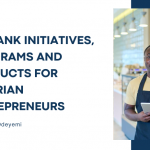The National School Investment Programme (NSIPA) has unveiled plans to allocate $80 million towards a cash transfer program aimed at assisting vulnerable individuals, including persons living with disabilities and senior citizens. This initiative is expected to provide a monthly stipend of N25,000 to beneficiaries over a three-month period.
NSIPA revealed that it aims to support approximately 15 million households, with over 1,500,000 beneficiaries already benefiting from the program. The funds, sourced from the World Bank and overseen by NSIPA, are slated to reach registered participants across all 36 states of the federation, including Abuja.
Speaking in Abuja, the National Coordinator and Chief Executive Officer of NSIPA, Halima Shehu, highlighted the digitization of the system. She emphasized that every individual in the national social register possesses a bank account and a Bank Verification Number (BVN). Efforts are underway to assign national identification numbers to further enhance accountability within the program.
Shehu clarified that the conditional cash transfer program, funded by the World Bank, aims to alleviate financial burdens by offering a monthly stipend. Additionally, the agency has initiated grants in Kogi, providing a one-off grant of N20,000, particularly targeting individuals living with disabilities. These initiatives aim to ease the impact of the fuel subsidy removal and ensure smoother consumption for vulnerable groups.
Addressing concerns about the potential hijacking of the program, Shehu reiterated that no directive had been given from her office to compile any lists. She stressed the autonomy and security of the rapid response register and the national social register, maintained and supervised by the World Bank.
Furthermore, Shehu disclosed adjustments to the feeding program for schoolchildren. She highlighted that each child, from primary one to three, is budgeted to receive N70 for a well-balanced meal, emphasizing the need for nutritious meals amidst economic constraints. Previous approvals of N100 per child had to be revised due to prevailing economic challenges, leading to a pause in feeding programs since the current government’s tenure began, considering the economic realities on the ground.










